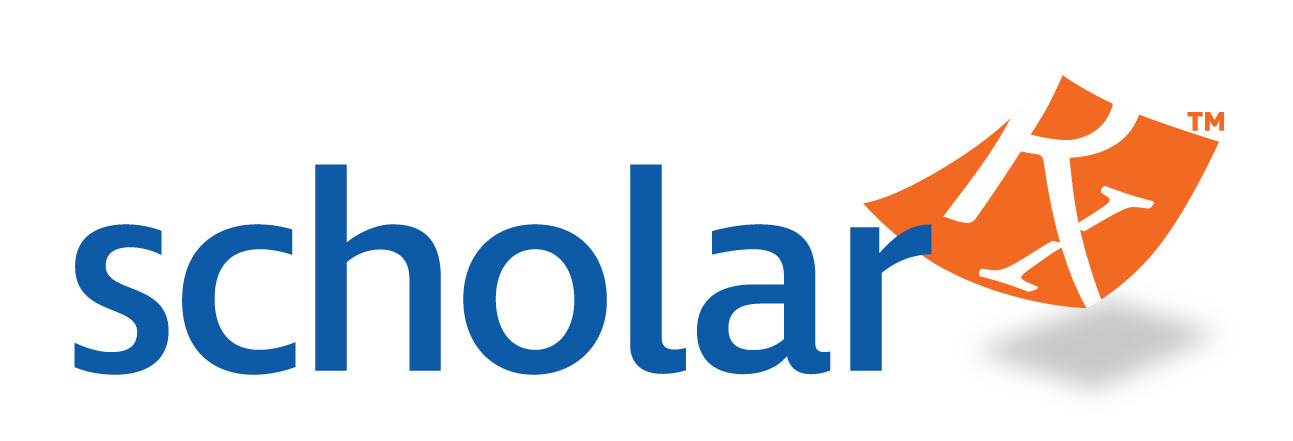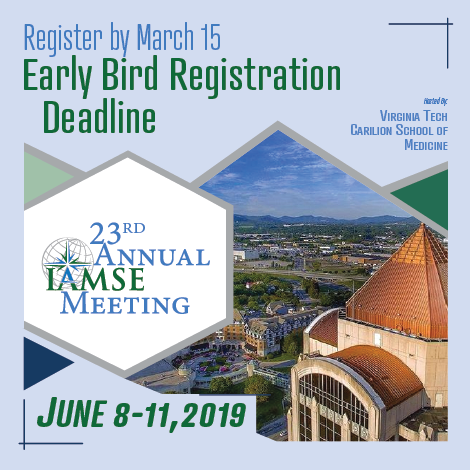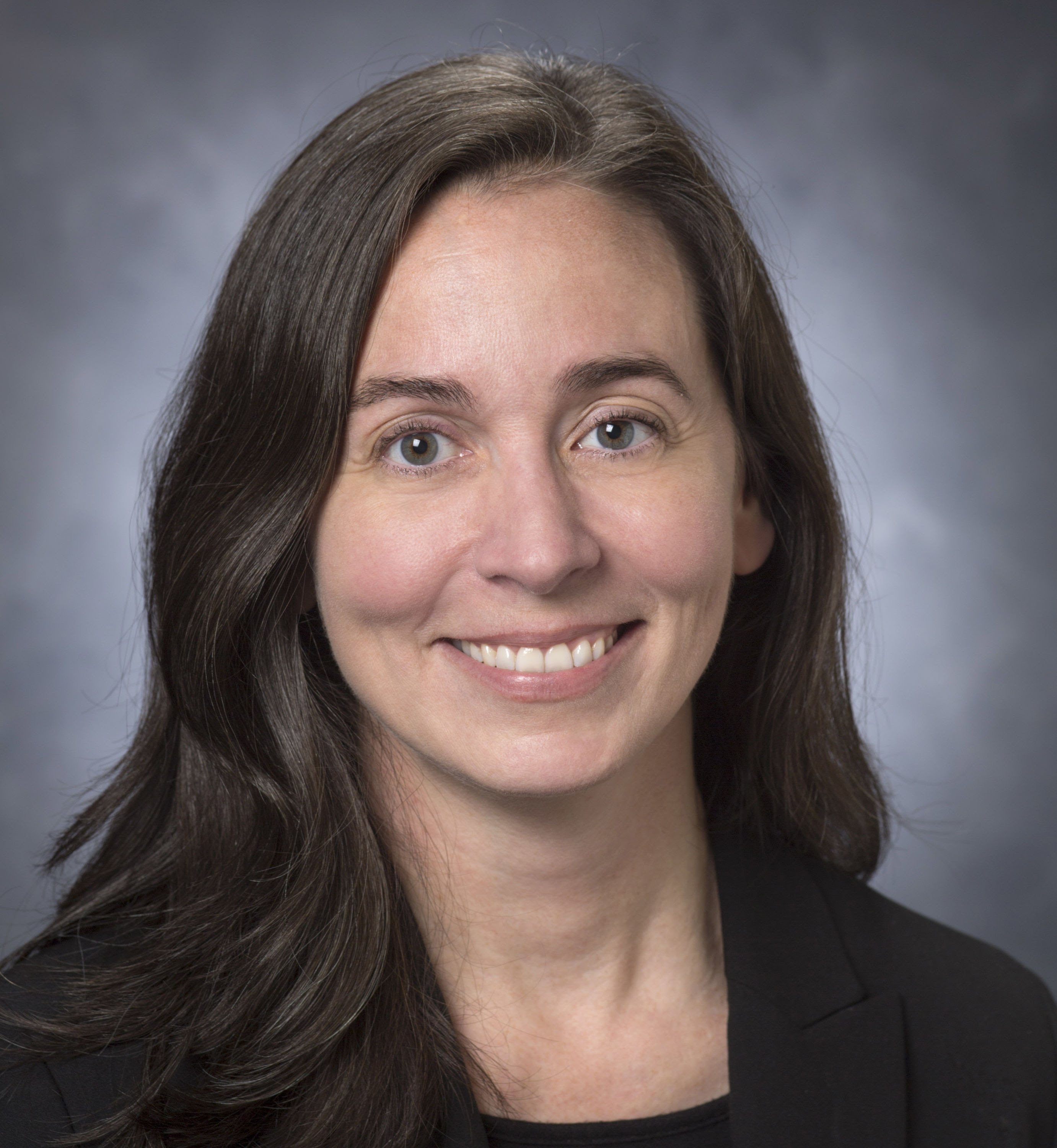[The following notes were generated by Mark Slivkoff, PhD]
IAMSE Webinar Series, Spring 2019
Speakers: Brenda Roman, MD
Associate Dean for Medical Education, Wright State University
Mary Joe Trout, Pharm D, BCPS, BCGP
Director of Foundations Curriculum, Wright State University
Irina Overman, MD
Director of Therapeutics Curriculum, Wright State University
Title: Lecture Free for Gen Z
Series: The Role of Basic Science in 21st Century Medical Education
The curriculum of the Boonshoft School of Medicine at Wright State University was the focus of IAMSE’s second thought-provoking webinar in the Spring 2019 Series. During their presentation, Dr. Brenda Roman, Dr. Mary Joe Trout, and Dr. Irina Overman discussed many facets of the unique lecture-free curriculum.
The curriculum was designed for students of “Generation Z”, a population made up of individuals born between 1995 and 2010. This generation has grown up with access to more information than any other generation before them. They are technologically advanced since they have grown up with smart iPhones, iPads, and fast internet with immediate access to Google. They are heavy users of social media and value privacy as well as security. Social justice movements such as legalization of same-sex marriage and “Black Lives Matter” have led this generation to believe that they have the power to change the world. Their concerns center around the well-being of everyone around them rather than just themselves, a mindset which differs from the previous “Millennial” generation.
So, Dr. Overman continued, what do we medical educators do, knowing Gen Z is in our classrooms? We should embrace their generational characteristics and capitalize on them in the classroom. Knowing that information is readily available and that these students thrive on independent learning and technology, we can design classroom projects which allow for independent learning. In addition to the value they place on independent learning, these students prefer “hands on” learning, application to “real life”, and a focus on community engagement. They also view their peers and instructors as valuable resources. Our presenters emphasized that health care requires group interaction, therefore these students must also be involved with group learning which works well after the students have been observers first.
The curriculum at Boonshoft School of Medicine allows for all of these preferences. Besides the focus on learning preferences, the curriculum was also designed with activities which maximize retention. Our presenters pointed out that that lectures—although an easy way to transmit information from faculty to students—are quite ineffective ways to learn. Therefore, the school removed them from the curriculum.
How do Boonshoft’s instructors guide the students in learning the massive amounts of information without lectures? They use low stakes engaged learning sessions in which the students are involved in the discussions, teaching others and practicing their craft. Students, Dr. Overman continued, set the stage for their own lifelong learning. Mandatory sessions occur daily and are not recorded. Since the majority of learning occurs in these sessions, students recognize that a missed session is a missed learning opportunity, and therefore overall attendance problems are very rare. Students are allowed up to four unexcused absences per semester.
At the beginning of the first year, students are required to read Make It Stick by Brown et al. The initial session centers on the science of learning, specifically the students learn how to instruct their peers. The following sessions involve a mix of various learning strategies that have been proven to work, including:
• Interleaved practice (practice multiple skills at once)
• Elaborative integration (learn until you understand it well enough to teach)
• Self-explanation
• Distributed practice
• Practice-testing (quizzing yourself, flashcards)
• Retrieval-based learning (working towards understanding builds memory)
The instructors explain to the students that learning is difficult and that the curriculum is challenging. Students are encouraged to foster a growth mindset; they need to have a willingness to learn from reading and must be comfortable with not having a mastery of the material before each session.
Dr. Trout continued the discussion and described that the curriculum is built around four major modalities:
• Peer instruction
• Team-based learning
• Multiple choice questions
• WrightQ
At the beginning of most sessions, a USMLE-style multiple choice question is projected on the screen. The students have 1.2 minutes to read and answer the question on their own (captured by their student response system, Turning Point). Students are then given time to discuss their answers among themselves. Afterward, a student is selected at random to explain their choice. At this time, the faculty member can clear up any misconceptions and address topics the student found challenging.
Dr. Trout explained that this type of engaged learning requires paying attention to some important considerations since students are not used to this type of learning. Students must know how to read a textbook to maximize learning, and instructors need to be careful not to overload them with too much or too complicated pre-assignments. Students are told that each 1-hour session requires about 2-3 hours of preparation time, and that they should set aside time immediately following the session to consolidate their knowledge.
Dr. Roman took over the final portion of the webinar during which she described the design of the curriculum, comments from students, and their success in the program. Overall, the curriculum has proven to be very effective but further analysis of the data (a process currently underway) should help them understand why learning (and Step 1 scores) are on the rise.
When designing the new curriculum, faculty members and administration had to all be “on board” with the switch to a lecture-free environment. Most faculty members made the switch, but some clung to their belief that being a “sage on a stage” is most effective, and parted ways with the college. Dr. Roman went through a list of what the college did right, including:
• Utilizing true backward design of the curriculum
• Establishing a policy of 20 hours face time per week
• Holding firm for faculty NOT doing lectures
• Establishing consistency across modules for the teaching/learning sessions
• Getting constant feedback from students
• Being flexible when possible
Dr. Roman also explained what they should have considered when moving completely to a lecture-free curriculum:
• Better anticipate faculty needs (preparation time is very large)
• Do not adopt other significant changes (like an LMS) at the same time
• Better explain the “Why” and “Positive Impact” than Gen Z students require
At the conclusion of the webinar, a large number of questions were asked and answered, but a much larger number were logged but not answered due to time. Clearly, the presentation captured the attention of literally hundreds of educators most of whom are not teaching at a college which has done away with lectures.
For more information about Drs. Roman, Trout and Overman’s May workshop on Peer Instruction, please visit this link.






